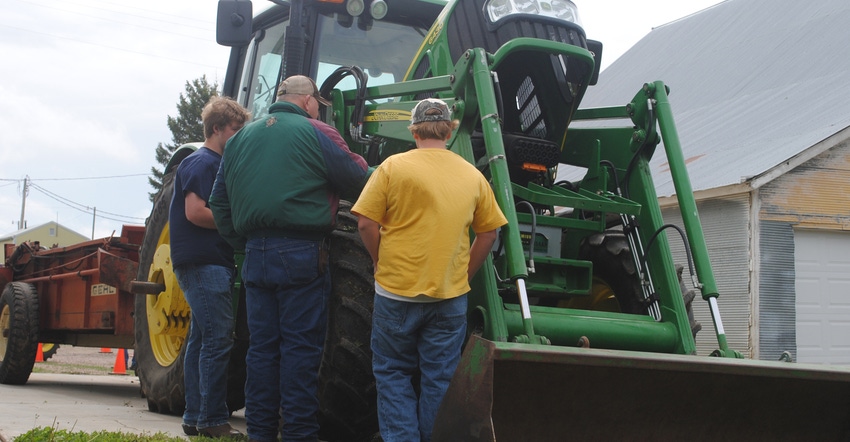
Fuel prices are skyrocketing, so fuel efficiency in everything you drive on the farm — including tractors — is of great concern when it comes to your bottom line.
We asked Roger Hoy, University of Nebraska Tractor Test Laboratory director, about ways to improve fuel efficiency and fuel savings in tractor operations.
“A recommendation for all equipment is to make sure all is in good repair, no leaks, clean filters and clean oil, for instance,” Hoy says. “Follow the directions in the operator’s manual for proper service intervals and operation.”
Beyond those basic recommendations, Hoy dug a little deeper into tractor fuel efficiency. Here are three tips:
1. Match the tractor to the job. “Many farming operations have several tractors on-site,” Hoy says. “For a particular operation, the least fuel will be consumed generally when a smaller tractor works harder than a larger tractor that is not having to work hard. Nebraska Tractor Test reports can be helpful to predict fuel usage for tested tractors and allow for comparisons between tractors to be made.”
Those reports are found for free online at tractortestlab.unl.edu.
2. Shift up a gear and reduce throttle. ��“Most field operations have wide variability of tractor power requirements, even with the same hardware in the same field with the same operator on the same day,” Hoy says. “One way to reduce fuel is to shift up a gear or two and reduce the throttle to maintain the same travel speed to the fullest extent possible.”
Continuously variable transmissions (CVT) do this automatically, Hoy says, and there are even some tractors that can shift a traditional transmission automatically.
3. Choose a new tractor with operations in mind. “When considering a new tractor purchase, carefully evaluate what operations are intended for the new tractor purchase,” Hoy says, “and choose an appropriate power level for the new tractor.”
Tractors are the most fuel efficient when fully loaded, so a smaller tractor loaded at 70% of rated power is generally going to use less fuel than a larger tractor loaded at 50% of rated power.
“A producer who practices no-till may only occasionally need to perform deep tillage,” Hoy says. “Perhaps deciding to contract out the occasional deep tillage work and buying a smaller tractor would be a good business decision — lower purchase price and more fuel efficient for normal tasks such as planting. Recall also that the price of a tractor is proportional to the power of the tractor, so there is an inherent bias to selling producers larger tractors.”
About the Author(s)
You May Also Like






